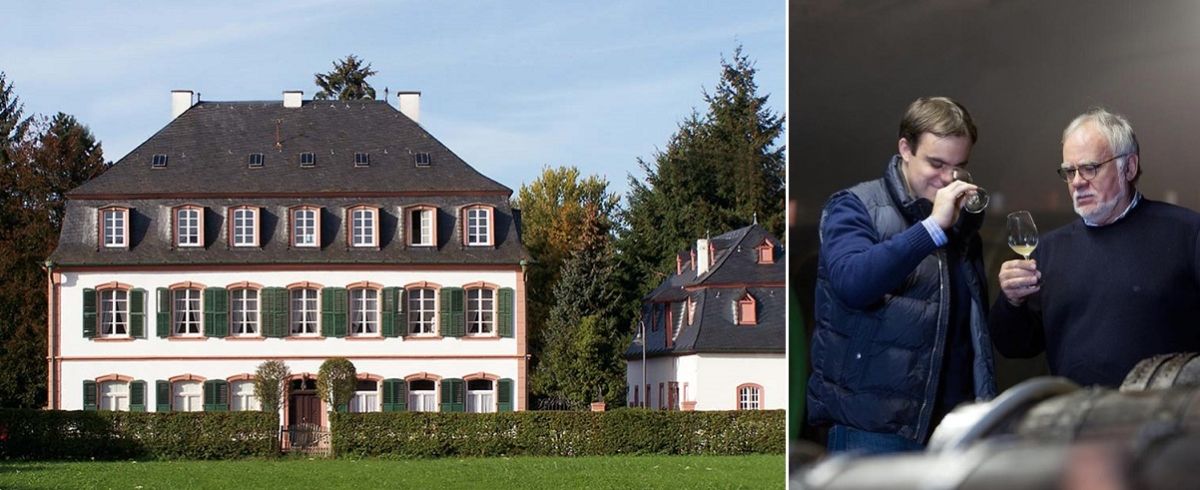currently 167,549 Wines and 25,100 Producers, including 3,302 classified producers.
 0.75 L
0.75 L
 0.75 L
0.75 L
 0.75 L
0.75 L
 0.75 L
0.75 L
 0.75 L
0.75 L
 0.75 L
0.75 L
The traditional winery is located in the municipality of Mülheim in the German wine-growing region of Mosel. It goes back to a trading company founded in 1680 and has been owned by the family ever since. A document from 1643 attests to a vineyard purchase in the Brauneberg. The baroque manor house with its French garden was built in 1774. The winery, which is separate from the manor house, was built in 1880. In 1813, the ancestor Franz Ludwig Niessen (the father-in-law of the then owner Ferdinand Richter) saved the municipality of Mülheim and the county of Veldenz from being pillaged by the French troops of Emperor Napoleon Bonaparte (1769-1821). An encounter took place on the Klosterberg (Helenenkloster vineyard), where Niessen handed over the demanded ransom of 3,000 Thalers to the Emperor. Today, the winery is owned by Dr. Dirk Richter and his son Constantin Richter (oenologist).

The vineyards cover 21 hectares of vines in the single vineyard sites Juffer and Juffer Sonnenuhr (Brauneberg), Treppchen (Erden), Dompropst and Himmelreich (Graach), Helenenkloster im Monopol and Sonnenlay (Mülheim), Sonnenuhr (Wehlen), and Elisenberg (Veldenz). They are mainly planted with Riesling (93%), the rest with Pinot Blanc, Pinot Noir and Gemischter Satz. Pest control is carried out according to the principles of integrated pest management. This includes the use of natural fertilisers and the avoidance of herbicides and insecticides. A very late and differentiated grape harvest is carried out by hand. Fermentation takes place spontaneously with the vineyard's own yeasts. The wines are matured in traditional fuder barrels. About half of the wines are dry, half dry and half sweet. Riesling ice wines from the Helenenkloster monopollage are a speciality. Two bottle-fermented vintage sparkling wines are also produced (Riesling Brut and Pinot Blanc Brut Nature).